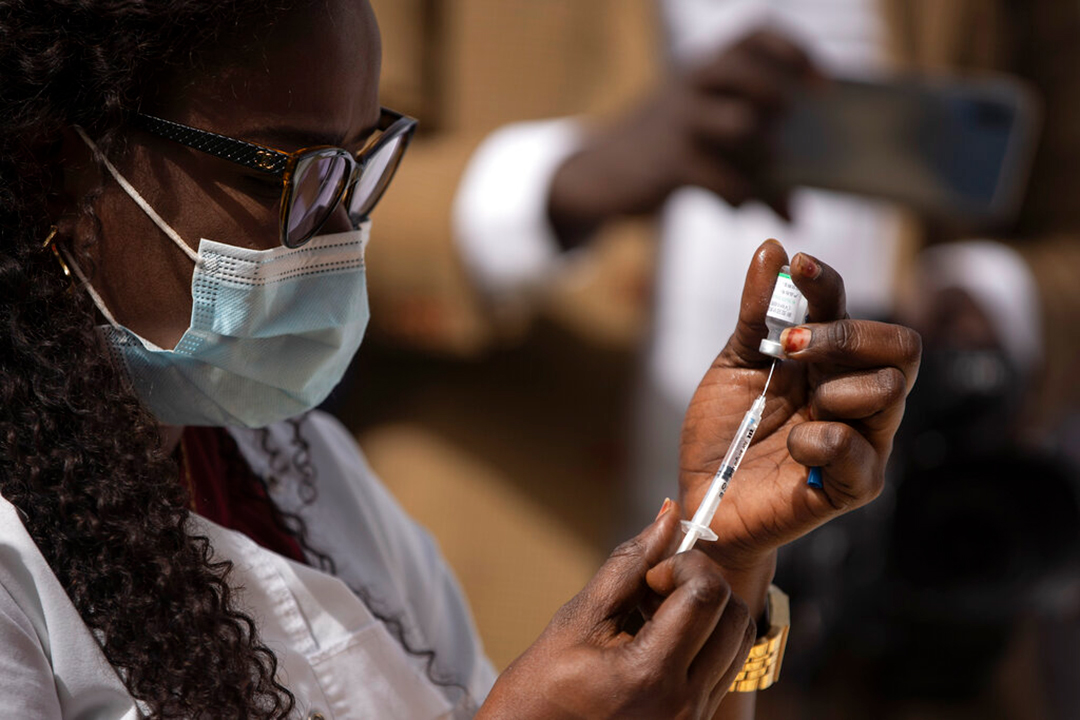ADF STAFF
As African nations receive millions of vaccine doses to fight the COVID-19 pandemic, they face a new challenge: getting citizens to roll up their sleeves.
A combination of mistrust and misinformation is slowing the continent’s effort to stamp out the pandemic, public health experts say. While governments struggle to convince their citizens the pandemic is real and vaccines are effective, bad actors, including some supported by China and Russia, target Africans with disinformation campaigns designed to discredit successful vaccines.
In the resulting confusion, countries are bracing for a third wave of infections even as they destroy unused vaccine doses.
Malawi and South Sudan have said they will have to destroy some vaccine doses. Sierra Leone’s health minister, Austin Demby, has said one-third of his country’s 96,000 doses will expire before they can be used because people see COVID-19 as less of a threat than Ebola.
In Nigeria, public sentiment sees COVID-19 as a hoax and the government as untrustworthy.
“Nigerians are concerned with how and where these COVID vaccines brought to Nigeria were gotten/acquired,” Ifeoluwa Asekun-Olarinmoye, a public health lecturer and epidemiologist at Babcock University in Nigeria, told ADF. “Most citizens just have an inherent mistrust of the Nigerian government and its ability to develop and deliver safe and effective vaccines.”
Similar suspicions circulate in South Africa — the nation with the highest COVID-19 caseload on the continent — about the trustworthiness of government and the reliability of the health care system.
In a survey across 15 African countries in December 2020, most people told the Africa Centres for Disease Control and Prevention (Africa CDC) that they would be willing to take a COVID-19 vaccine if it were safe and effective. However, since vaccines began arriving on the continent in February 2021, enthusiasm for vaccinations has been low.
Six weeks after receiving 500,000 vaccine doses from the international COVAX facility, Côte d’Ivoire has distributed less than 18% of them. Misinformation spreading in that country portrays COVID-19 as a crisis manufactured by outsiders.
“There’s a lot of fear and suspicion surrounding the vaccines,” nurse Salomon Sadia Koui told Bloomberg news service as she waited for people to visit a vaccination center in Abidjan. “Women ask if the shot will make them sterile.”
In Somalia, al-Shabaab is falsely telling people they are being used as guinea pigs for drug makers. In Cameroon, some people are being told the vaccines are a way for companies to profit off Africans.
Ugandan Health Minister Jane Ruth Aceng faced allegations that she faked receiving a shot, leading her to post a video on Twitter showing her taking the vaccine and urging: “Please stop spreading fake news!”
In the midst of this, the China Global Television Network division based in Kenya and four internet sites connected to Russian intelligence services have pushed stories critical of Western vaccines as a way to promote their countries’ own vaccines.
Zimbabwe has adopted Chinese vaccines, which have not yet won approval from the World Health Organization. So far, less than 20% of Zimbabweans have taken the vaccine.
Africa CDC Director John Nkengasong expects public sentiment to shift in favor of vaccinations as the continent moves ahead with a plan to vaccinate 60% of its 1.3 billion residents by the end of 2022.
During a weekly COVID-19 briefing, Nkengasong acknowledged the widespread hesitancy toward getting vaccinated.
“As people receive their vaccines, this will shift,” he said. “When they see people they know receive the vaccines, this will, hopefully, lead to an increase of people who are willing to get vaccinated.”


Comments are closed.